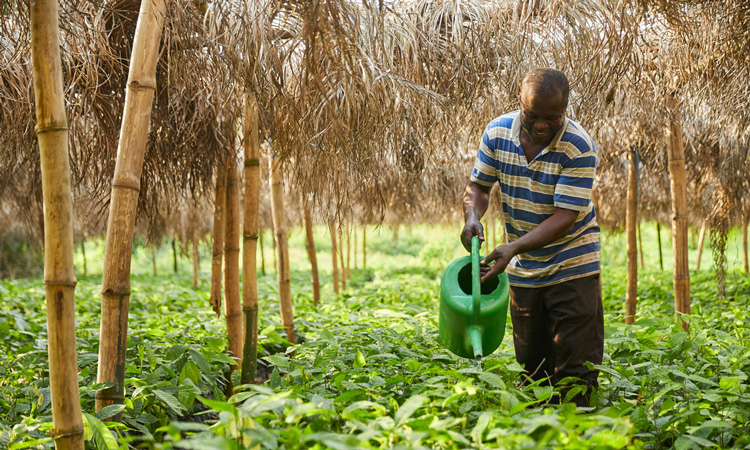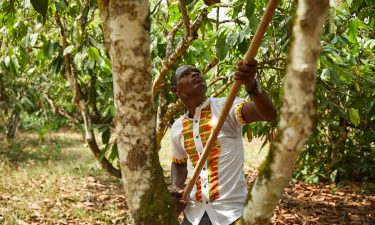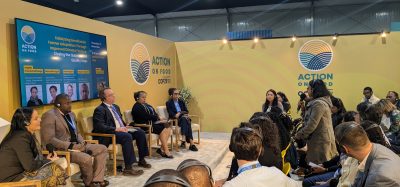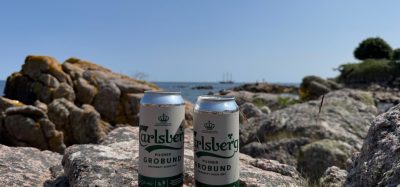Protecting forests as an economic proposition for cocoa farmers
- Like
- Digg
- Del
- Tumblr
- VKontakte
- Buffer
- Love This
- Odnoklassniki
- Meneame
- Blogger
- Amazon
- Yahoo Mail
- Gmail
- AOL
- Newsvine
- HackerNews
- Evernote
- MySpace
- Mail.ru
- Viadeo
- Line
- Comments
- Yummly
- SMS
- Viber
- Telegram
- Subscribe
- Skype
- Facebook Messenger
- Kakao
- LiveJournal
- Yammer
- Edgar
- Fintel
- Mix
- Instapaper
- Copy Link
Posted: 18 May 2020 | Andrew Brooks | No comments yet
Andrew Brooks, Global Head of Sustainability at Olam Cocoa, explains the need to support cocoa farmers as a way to reduce deforestation, and highlights the progress that the collaborative Cocoa & Forests Initiative has seen.


Deforestation is a recognised problem in the cocoa industry. Ghana and Côte d’Ivoire, the world’s two biggest cocoa producers, have experienced some of the fastest rates of deforestation anywhere in the world and this is also a growing concern in many other cocoa growing regions across Africa, South America and South-East Asia.
As an industry we need not only to reduce deforestation, but reverse it. That is why it is so heartening to see the recent progress reported by companies taking part in the Cocoa & Forests Initiative, a collaboration between the governments of Côte d’Ivoire and Ghana and dozens of leading cocoa and chocolate companies dedicated to protecting forests and supporting farmers to grow cocoa sustainably.
Our biggest opportunity by far is in agroforestry, where farmers plant other native plants alongside cocoa…
Deforestation is a complex and interconnected problem that requires us to tackle its root causes, including the fundamental problem of low farmer incomes. Most cocoa farmers have small amounts of land with low yields that do not earn them enough to fully support their families. To bring in extra income, they may resort to clearing more land to farm.
Help cocoa farmers to improve productivity and earn a living income on their existing land and you go a long way to solving deforestation too. That can take many forms. From helping farmers to adopt better farming techniques, like pruning, to helping them to diversify their income, for example by providing seed funding for apiaries or for other cash crops.
But our biggest opportunity by far is in agroforestry, where farmers plant other native plants alongside cocoa, because this is where we can make the protection and restoration of forests and sustainable farming practices an economic proposition. It is an approach to farming where environmental stewardship and better farmer livelihoods go hand in hand.


We are taking the same approach in Pará in Brazil where we are working with The Nature Conservancy and one of our key branded customers. We plan to restore 500 hectares of degraded land with forests and plant 200 hectares of cocoa agroforestry. As well as providing training and resources, we are offering cocoa farmers a price premium in exchange for commitments on zero deforestation and restoration.
These programmes enable significant benefits. As well as the obvious environmental benefits, planting forest and fruit trees protects the cocoa from adverse weather, enriches the soil with nutrients, and provides additional crops for farmers to eat or sell, which means a better income for farmers. This quantifiable benefit to farmers creates real behaviour change.
As an industry we need not only to reduce deforestation, but reverse it.
That is why we need multi-stakeholder initiatives like the Cocoa & Forests Initiative, which aim to protect and restore forests but understand that, to do so, we must look at a holistic solution that encompasses incomes, sustainable farming practices and community support altogether. Sensitising farmers on the dangers of deforestation alone can only have so much impact if that is the sole route a farmer can follow to support their family.
There is a lot more work to do, but the good news is the industry has a clear blueprint to follow. To eliminate deforestation, we must make the economic case to farmers to adopt sustainable farming practices and empower them to implement them. Do that, and we can create a more positive future for cocoa growing communities and the environment alike.
About the author
Andrew is a serving member of the World Cocoa Foundation Technical Working Committee and a Board member of GrowCocoa; the Sustainability partnership between Blommer Chocolate and Olam Cocoa.
Andrew has recently relocated from Cote d’Ivoire, where he served as Vice President of the Cocoa & Forest Initiative Traceability group and Steering Committee member, also Vice President of Cote d’Ivoire cocoa & coffee Public Private Partnership Platform and as Treasurer and Executive Committee member of GEPEX, the Cote d’Ivoire cocoa and coffee exporters association.
Andrew has 36 years’ experience in Cocoa trading, management and sustainability, and has been with Olam for 13 years. He graduated with a Combined Honours degree in Business Administration and French from the University of Aston in Birmingham, England.









